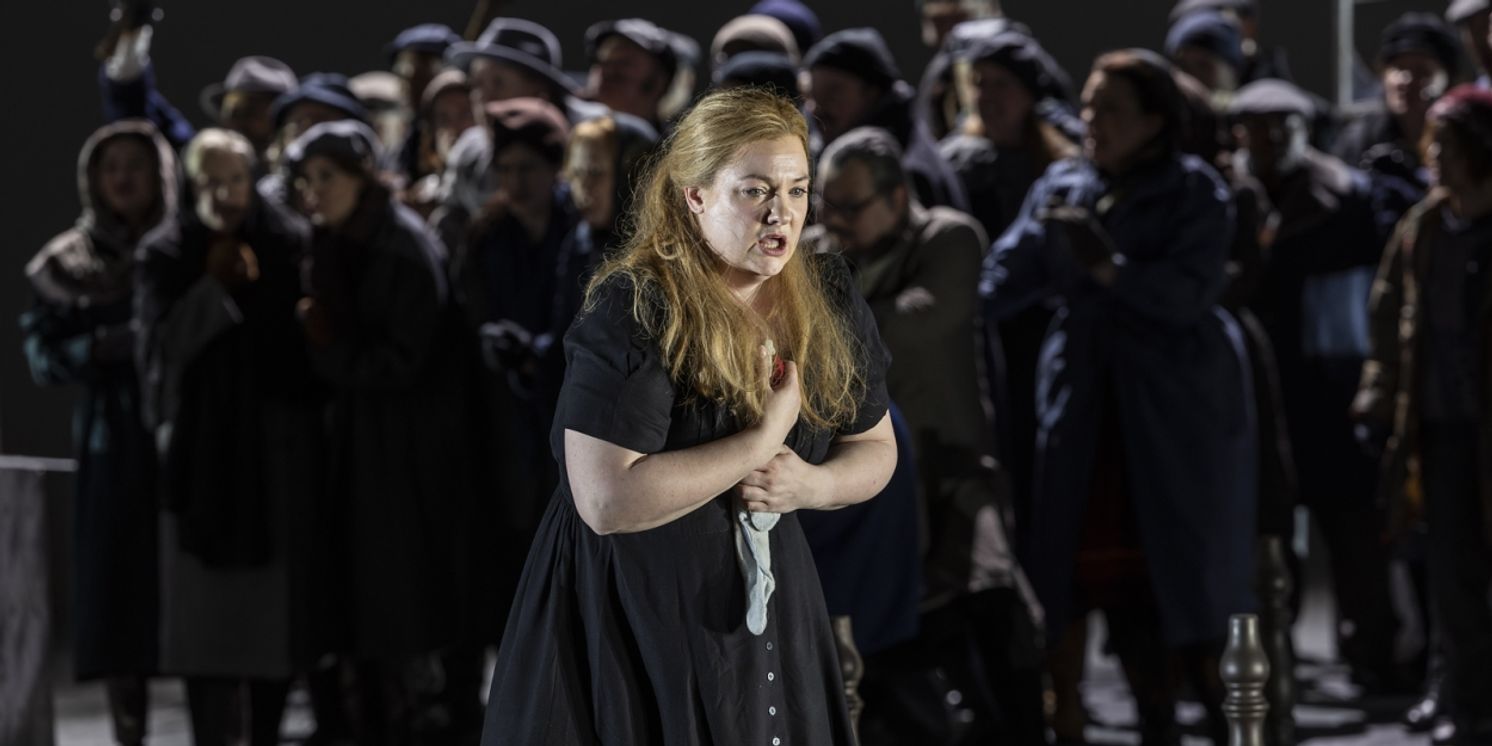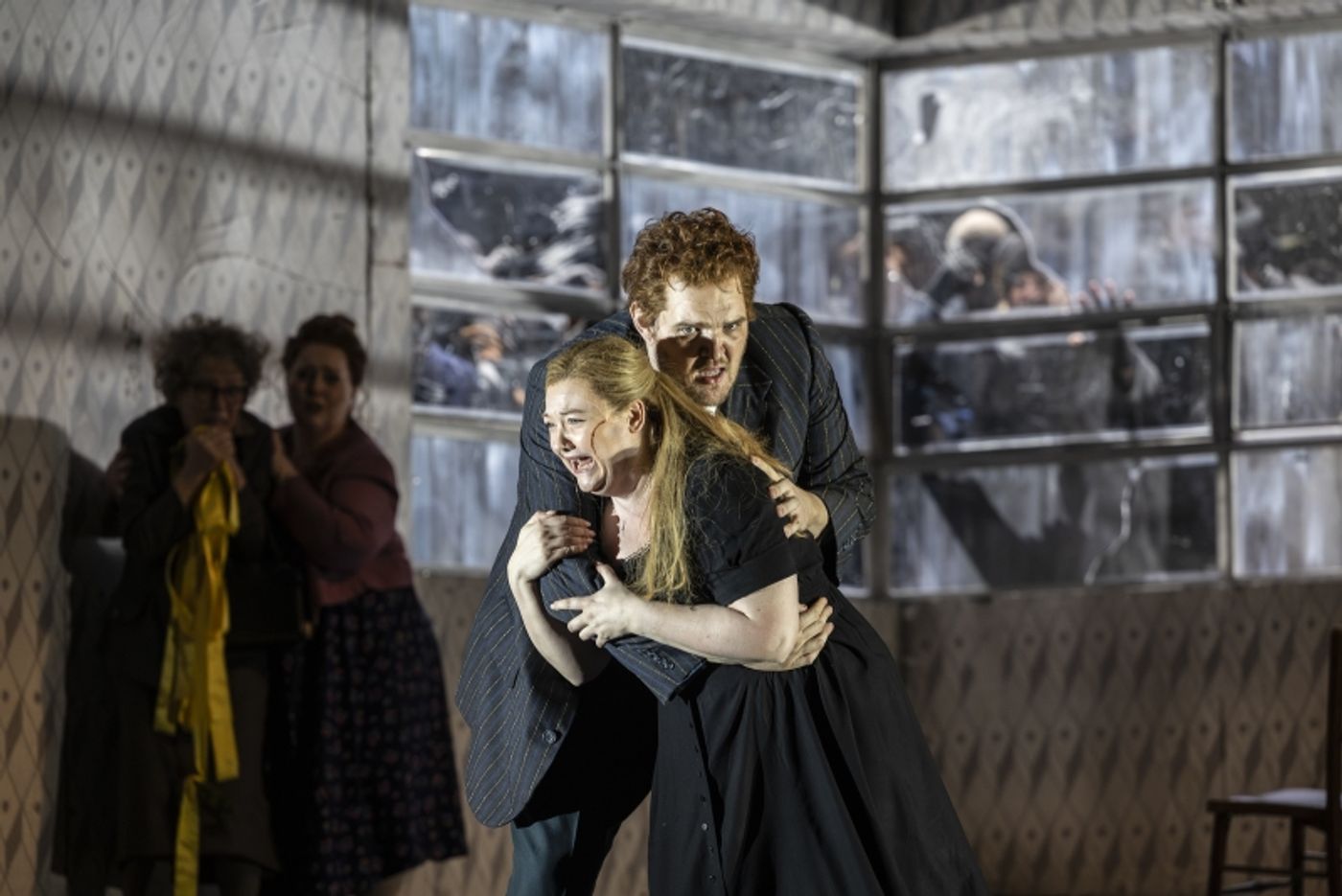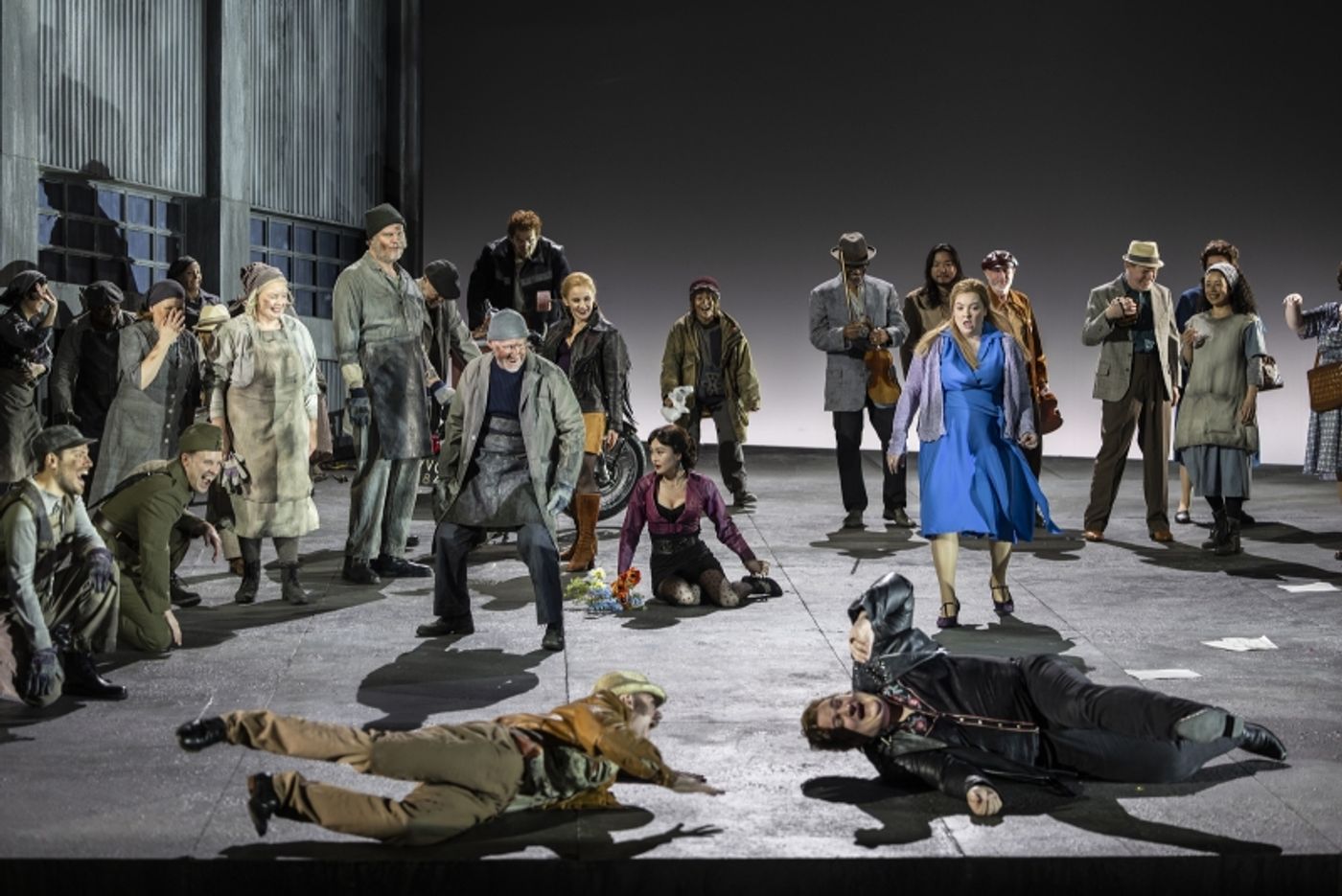Review: JENŮFA, London Coliseum
This dark and powerful version of Janáček’s breakthrough work gets there in the end.

![]() Opera is not short of stories where women are violated and abandoned by the men in their lives but Leoš Janáček’s Jenůfa is an especially cruel tale.
Opera is not short of stories where women are violated and abandoned by the men in their lives but Leoš Janáček’s Jenůfa is an especially cruel tale.
The last time David Alden’s version opened at the Coliseum was on the same day as the Brexit referendum and it returns again in momentous times, albeit for the ENO. The company is under pressure to cut costs and move out of London with redundancy notices already being handed out and strike action mooted. How much longer we will see works with this physical scale and full-blast emotional power is unknown.

This time around, the ENO chose to publish possibly the most genteel trigger warning ever: “An emotionally intense piece of work, those new to opera may want to opt for something lighter than Jenůfa. The diverse and impactful storyline makes for more of a complex viewing, which may be more difficult to follow if you’re not familiar with the variety of opera formats.” They suggested instead The Magic Flute or The Barber of Seville before wisely taking down this guidance.
Jenůfa was the first Janáček’s creation to gain notice beyond Poland and its pitch-black twist may prove uncomfortable for anyone who has lost a young child, especially an infant. It is a magnificent piece which is carefully plotted over three acts but, here in Alden’s hands, is belied by a highly unimpressive start. In a setting that could not be blander, he directs the first act as if this was some humdrum soap opera or a kitchen sink drama. Our heroine (played by Jennifer Davis) is not short of common sense but she is head over heels in love with her handsome cousin and local bad boy Števa (John Findon). She wants to tell him that she is carrying his baby but the threat of conscription hanging over his head and his casual manner hold her back. Her stepmother Kostelnička (Susan Bullock) warns her that Števa is behaving like her own deceased husband, drinking and spending away all his money. Meanwhile Števa’s half-brother Laca (Richard Trey Smagur) lusts after Jenůfa and - as she celebrates the news that her babydaddy will not be joining up after all - cuts her face with a knife just before the curtain falls for the interval.
-X3.jpg?format=auto&width=1400)
At that point, the audience could be forgiven for wanting to follow the ENO advice and opt for something else, like a walk back to the nearest tube station. The underwhelming direction up to this point is lax and slight with little in the way of chemistry between the leads. In his teddyboy quiff, Števa lounges around to no great effect while Jenůfa and Laca’s intense feelings dissipate almost as soon as their words are said. The open stage design and unfocussed lighting doesn’t pull us into this story or give us much indication of time or place. There is no rushing back to the seats.
What follows after the interval, though, seems to come from a different director. The misfiring first act is soon forgotten as things get deeper and darker very quickly. Given that this is the biggest venue in the West End, Charles Edwards does a phenomenal job of creating a morbidly claustrophobic environment within Kostelnička’s home eight days after Jenůfa gives birth. In one of many heart-rending moments, the older woman comes to realise that her step-daughter can have either a happy future with a husband or live in poverty with the child. She makes a fatal choice and it is a truly heart-rending scene from Bullock; not only is the babe left to die from exposure but Kostelnička knows that her own life will be forfeit once she is eventually discovered to be its killer.
Bullock and Davis make for an utterly compelling central pairing in this middle act especially as Jenůfa goes from hearing of her child’s death to learning how he died. The lugubrious outcome of Kostelnička’s puppeteering of those around her is made all the more powerful by Bullock’s superb acting which often overshadows the rest of the cast.

Smagur and Findon are solid as the brothers who eventually come together in peace. Even if the writing isn’t wholly convincing, they find deep resonance in these flawed characters. Keri-Lynn Wilson commands the orchestra with verve, leaning heavily on the talents of her first violin to realise the tender power in Janáček’s masterwork.
The tragedy on stage is underlined by the tragedy off-stage. The Polish composer dedicated Jenůfa to his daughter Olga and the current production is dedicated to Keel Watson. The bass baritone was due to play the Mayor here before he passed away suddenly last November aged 59 after appearing in the ENO’s Iolanthe.
Alden sticks the landing commendably but only after a very shaky start. Everyone with the patience to stick around after the interval will be rewarded for opting into this revival, regardless of what the ENO may think.
Jenůfa continues at London Coliseum until 27 March.
Photo credit: Ellie Kurttz
Reader Reviews
Videos

